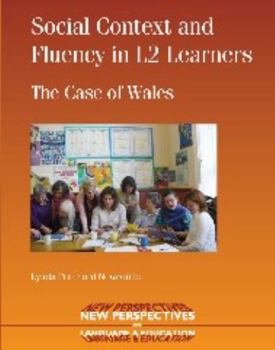Social Context and Fluency in L2 Learners: The Case of Wales
(Part of the New Perspectives on Language and Education Series and New Perspectives on Language and Education (#5) Series)
Select Format
Select Condition 
Book Overview
Social context, an often-neglected dimension in L2 learning/use, can play a vital role in sustaining learners' initial motivation. As researchers have begun to shift their focus from teaching to learners and learner variables, what happens to learners when they practise their new skills in the community, has become an important area of concern. Using data on Welsh learners' experiences outside the classroom, the author argues that, in order to learn a second or foreign language successfully, learners require regular interaction in the target language in a setting in which they feel comfortable. The impact on learners of native speakers' switch to a language of wider communication, their speed of speech, use of dialect and identity issues are explored as are the relevance of practical issues such as time and opportunity and affective factors such as anxiety.





